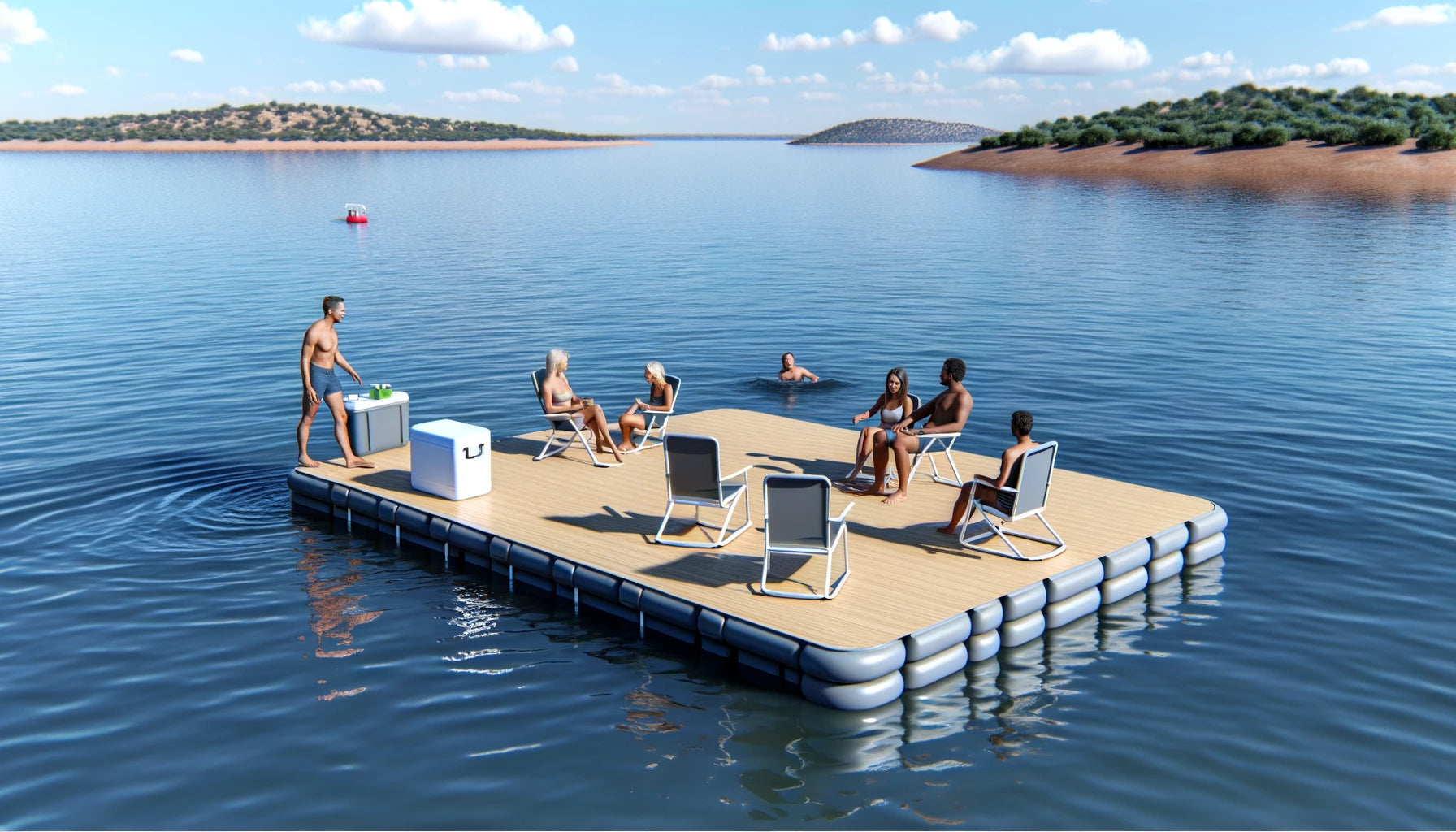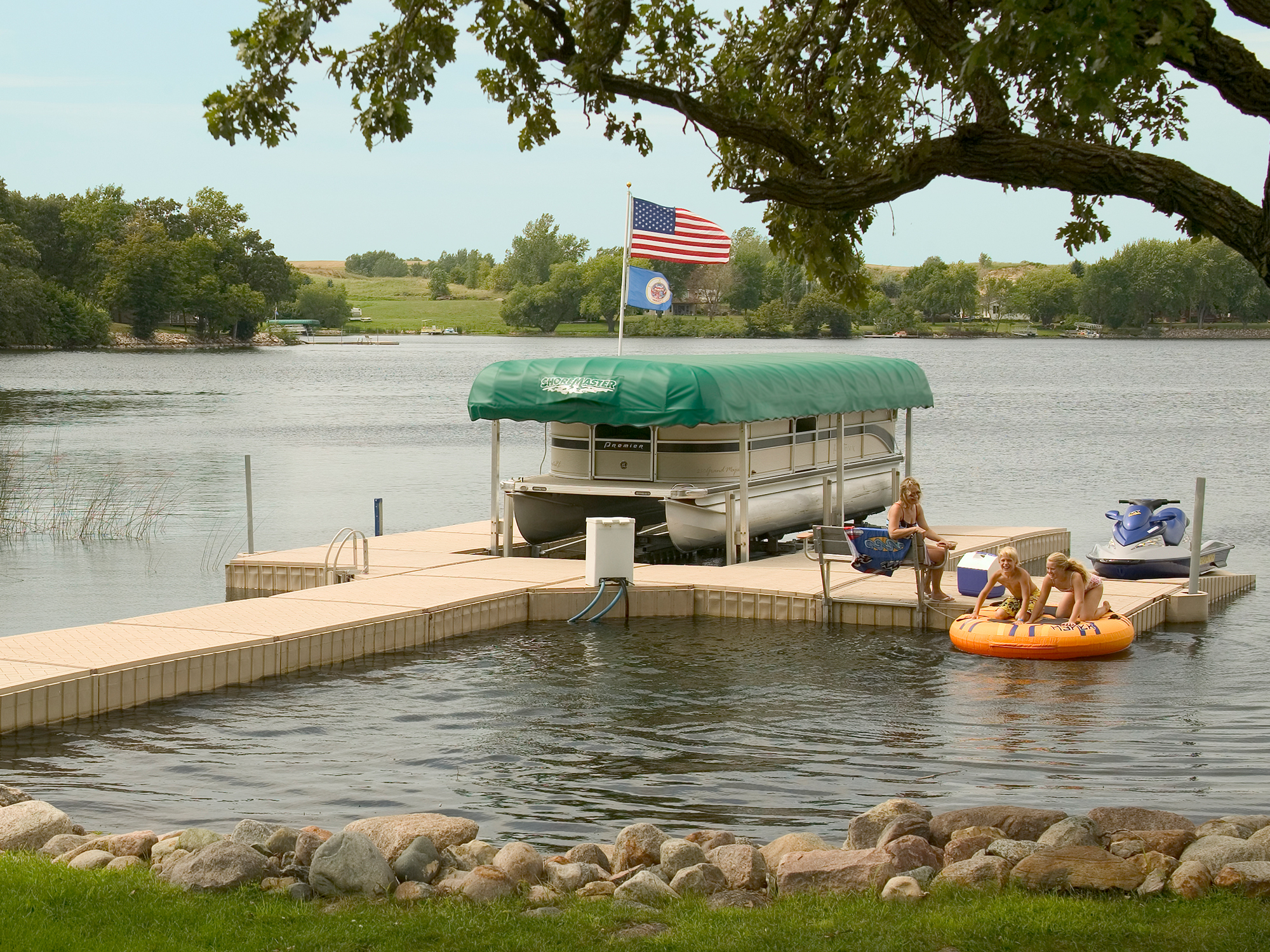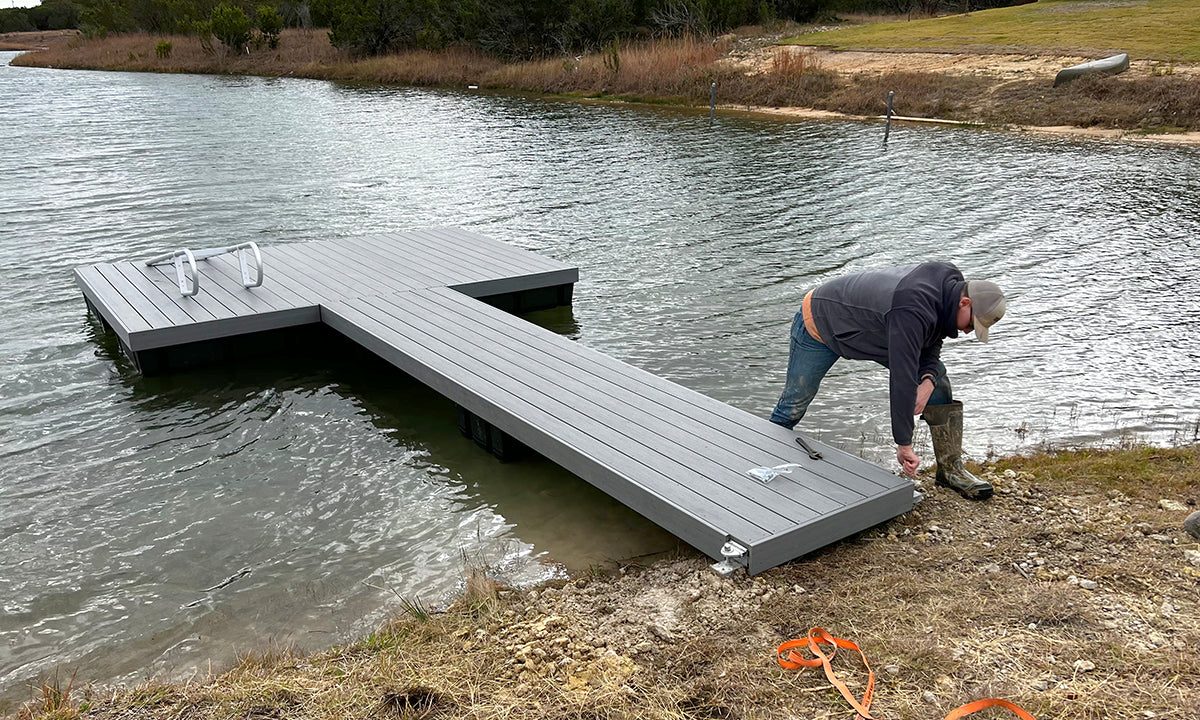Discover the Advantages of Selecting a Floating Docks Option for Your Waterside Home
Discover the Advantages of Selecting a Floating Docks Option for Your Waterside Home
Blog Article
The Ultimate Overview to Choosing the Best Floating Docks
Picking the excellent floating dock calls for a comprehensive understanding of various components that influence both efficiency and durability. Variables such as dock types, products, and crucial functions significantly influence your decision-making process.
Understanding Floating Dock Kind
When picking a floating dock, it is vital to recognize the different kinds available, as each serves distinct objectives and applications. Floating docks mainly come under 3 groups: modular, stationary, and pontoon docks.
Modular docks are made up of private sections that can be quickly constructed or reconfigured, making them optimal for changing water levels and diverse uses, such as leisure activities or business operations. Their versatility allows for personalization based upon certain demands.

Pontoon docks are identified by their resilient framework, commonly composed of several pontoons that provide security and support. They are specifically well-suited for bigger vessels and are typically used in marinas or for waterside homes. Comprehending these types help in selecting the most suitable floating dock to meet certain demands, guaranteeing optimal performance and safety and security.
Secret Materials for Longevity
Selecting the appropriate materials for floating docks dramatically influences their sturdiness and long life. The most common materials consist of wood, plastic, metal, and composite products, each offering distinctive benefits and limitations.
Wood, often favored for its visual charm, needs regular maintenance to hold up against moisture and decay. Pressure-treated lumber can boost resistance to rot, but it may still be prone to insects and weathering.

Plastic docks, made from high-density polyethylene (HDPE), are resistant to rust, UV radiation, and influence, making them a preferred selection for seaside atmospheres. Their light-weight nature also promotes very easy installment and relocation.
Steel docks, generally created from aluminum or galvanized steel, offer exceptional strength and resilience. They are resistant to corrosion, particularly when dealt with, but may call for added insulation to stop warmth build-up in warm environments.
Composite materials, combining wood fibers and plastics, deliver the benefits of both timber and plastic, resisting moisture and fading while needing very little upkeep. - floating docks
Ultimately, the option of materials should straighten with ecological problems, intended usage, and maintenance preferences to make certain the floating dock continues to be useful and aesthetically pleasing gradually.
Necessary Features to Think About
While the option of products is vital, taking into consideration crucial features for floating docks is equally essential to make sure ideal performance and user fulfillment. One key attribute to assess is the dock's buoyancy capacity, which determines just how much weight it can sustain without immersing. floating dock company. This is essential for accommodating boats, personal watercraft, and even entertainment tasks
Additionally, transportability is a substantial factor to consider. Depending on your needs, you might want a dock that is easy to deliver and dismantle, especially if you plan to transfer it seasonally. Stability is one more essential attribute; a well-designed floating dock needs to reduce motion triggered by wind and water currents, offering a safe platform for individuals.
Safety attributes, such as non-slip surface areas and rounded edges, are additionally vital to stop crashes, especially in damp conditions. Moreover, take into consideration the schedule of accessories, such as ladders, bumpers, and cleats, which can improve the capability of your dock.
Setup and Upkeep Tips
Establishing and keeping a floating dock needs careful preparation like this and interest to detail to ensure its long life and optimum efficiency. Begin by choosing an ideal place that minimizes direct exposure to strong currents and waves, which can create damage. Make certain that the water depth is sufficient for the dock's elevation and that it is secured safely to avoid movement.
During setup, follow the maker's standards very closely, as improper setting up can jeopardize security. Usage premium materials resistant to rust, such as light weight aluminum or treated timber, to improve sturdiness. advice Regularly examine all components, including floats, connectors, and anchoring systems, for indicators of damages or wear.
If your dock makes use of flotation protection gadgets, guarantee they stay totally free and intact from leaks. By adhering to these installation and upkeep tips, you can enjoy a trusted and useful floating dock for years to come.
Budgeting for Your Dock
Budgeting for your dock is a crucial step that can considerably influence your general complete satisfaction and financial investment in a waterfront residential or commercial property. Developing a clear budget aids you browse the different options available and guarantees you make informed decisions that align with your monetary abilities.
Begin by figuring out the size and design of the dock you require, as these factors will greatly affect the expense. Floating docks can differ considerably in price, relying on products, buoyancy, and attributes like ramps and devices. Research different makers and providers to compare rates and understand the marketplace value.
In enhancement to initial expenses, think about ongoing costs such as maintenance, insurance policy, and potential fixings. Designate funds for these reoccuring costs to prevent shocks down the line. It's also prudent to allocate any essential authorizations or evaluations, which might be required by local policies.
Finally, bear in mind the possible return on investment. A tactical dock can enhance your building's worth and appeal, giving a positive monetary influence in the long-term. By budgeting efficiently, you can make sure i loved this that your dock satisfies your needs without jeopardizing your monetary security.
Conclusion
In verdict, picking the optimal floating dock requires an extensive analysis of various variables, including dock kinds, materials, vital attributes, and setup procedures. Careful factor to consider of monetary restraints will even more guarantee a sound investment.

While the choice of products is crucial, thinking about essential functions for floating docks is equally essential to guarantee optimal performance and individual contentment.Setting up and maintaining a floating dock requires cautious preparation and focus to information to ensure its longevity and optimal efficiency. Floating docks can differ significantly in price, depending on materials, buoyancy, and functions like accessories and ramps.In final thought, choosing the perfect floating dock necessitates a complete evaluation of different elements, consisting of dock types, materials, crucial functions, and setup procedures.
Report this page